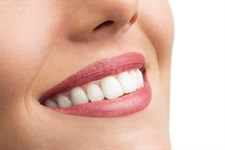Tips to keep teeth white
Teeth can be stained from the outside (extrinsic) and become discoloured from the inside (intrinsic) depending on the cause. Avoiding certain mouthwashes, antibiotics, smoking, watching what you eat and meticulous oral hygiene will help keep your teeth stain free.

© karelnoppe - Fotolia.com
Extrinsic staining is the most common and is caused by:
- Coffee, tea, red wine, beetroot, curries, some fruit and vegetables (apples, carrots) are just some examples of everyday items that will stain teeth. All these contain high amounts tannins, which in turn causes them to bind to your enamel, creating the stain.
- Mouthwashes that contain the ingredient Chlorhexidine if used too frequently, as it works by creating a positive charge in the mouth, allowing all negatively charged bacteria to bind to it and thus destroying the bacteria. Due to the 'charged' effect, other negatively charged food particles will also bind and this will lead to a very adherent stain on the enamel. These mouth rinses should be used with caution and should never be used for longer than 10 days.
- Tobacco (chewing or smoking) is not only harmful to all your oral tissues, but this will lead to near permanent staining of the enamel if used in high quantity.
Intrinsic staining is more complex and comes from a discoloration from within the tooth. The dentine (layer below enamel) can develop into a darker shade under certain conditions. Causes include:
- Excessively high fluoride consumption at a young age
- The anti-biotic tetracycline will cause lifelong staining if given to children during their developmental years. Although used less frequently nowadays, one should still be aware of its effects on developing teeth.
The only way to remove extrinsic stains effectively is to go for professional scaling and polishing by your dentist or oral hygienist. An ultrasonic scaler is an effective tool to remove tough stains from the enamel without damaging the tooth. Hand scalers and polishing cups are also used. A smooth and highly polished tooth surface will stain less than a rough or irregular tooth surface. This is why it is vital to have your teeth checked regularly. The average cost for a professional dental cleaning is around R300.
You can expect to pay a bit more if your dentist is doing the cleaning, but the recommendation is to have at least two professional cleanings a in a 12-month cycle. Then limit staining between dental visits by using an electric toothbrush with a specialised polishing head.
Whitening your teeth with bleaching products will not prevent staining. The extrinsic staining factors will always be at play regardless of whether you have bleached your teeth or not.
About Dr Marc Sher
Dr Marc Sher is a consultant to Litha Pharma.



























